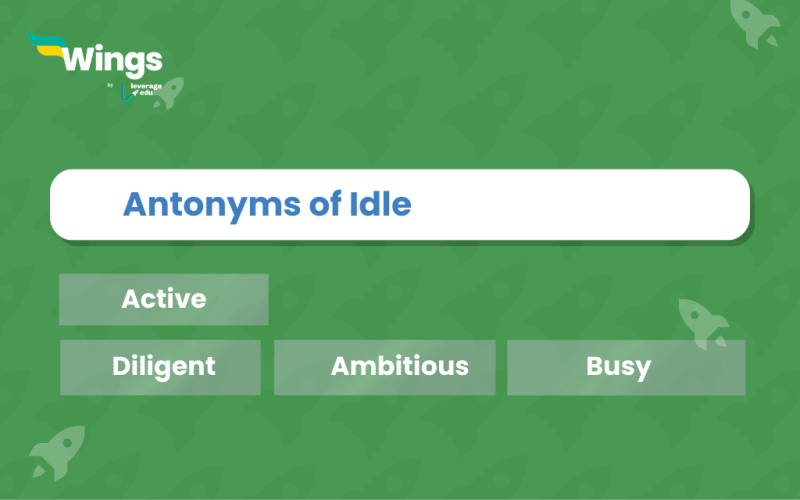Some common antonyms of idle are active, diligent, and ambitious. The word idle is an adjective that is used to describe a person who spends time doing nothing. It is also used to refer to an idle moment or period of time in which there is no work or activity. Let us know more about the word idle, its meaning, origin, antonyms, and its usage with examples in the article blog below.

Origin Of The Word Idle
The Latin word idle is derived from the Old English īdel, originally meaning “empty” and also means “useless, worthless.”

Antonyms of Idle
Let’s take a look at the following opposites of idle to expand your understanding of the word:
- Active
- Diligent
- Ambitious
- Busy
- Effective
- Employed
- Hustling
- Important
- Productive
- Used
- Working
- Worthwhile
Must Read: Antonyms of Stare, Meaning and Examples
Antonyms of Idle Examples With Usage
The term idle is often objective and can vary depending on the context and perspective of the speaker.
Let us understand the following examples of using the antonyms of idle in a sentence:
- Active: My brother is healthy and active.
- Diligent: My boss is a diligent and prolific worker.
- Ambitious: I am ambitious to become a doctor one day.
- Busy: I am really busy today.
- Effective: This antibiotic is quite effective to cure typhoid.
- Employed: Riya is employed in a bank.
- Hustling: The whole restaurant would hustle at 7’o clock.
- Important: I have some important work in the office.
- Productive: Students are more productive in the morning.
Also Read: Antonyms of Improve, Meaning and Examples
Antonyms of Idle Examples With Usage
1. Select the most appropriate antonym for the word idle.
A Useless
B Hollow
C Empty
D Important
Answer: Important
Which word is not the opposite of the word idle?
A Bootless
B Employed
C Used
D Worthwhile
Answer: Bootless
Explore More Exciting Reads Below
This was all about the antonym of “idle” meaning and examples. Hope you understand the term idle and its usage. For more such blogs, follow Leverage Edu.
 One app for all your study abroad needs
One app for all your study abroad needs














 45,000+ students realised their study abroad dream with us. Take the first step today.
45,000+ students realised their study abroad dream with us. Take the first step today.

